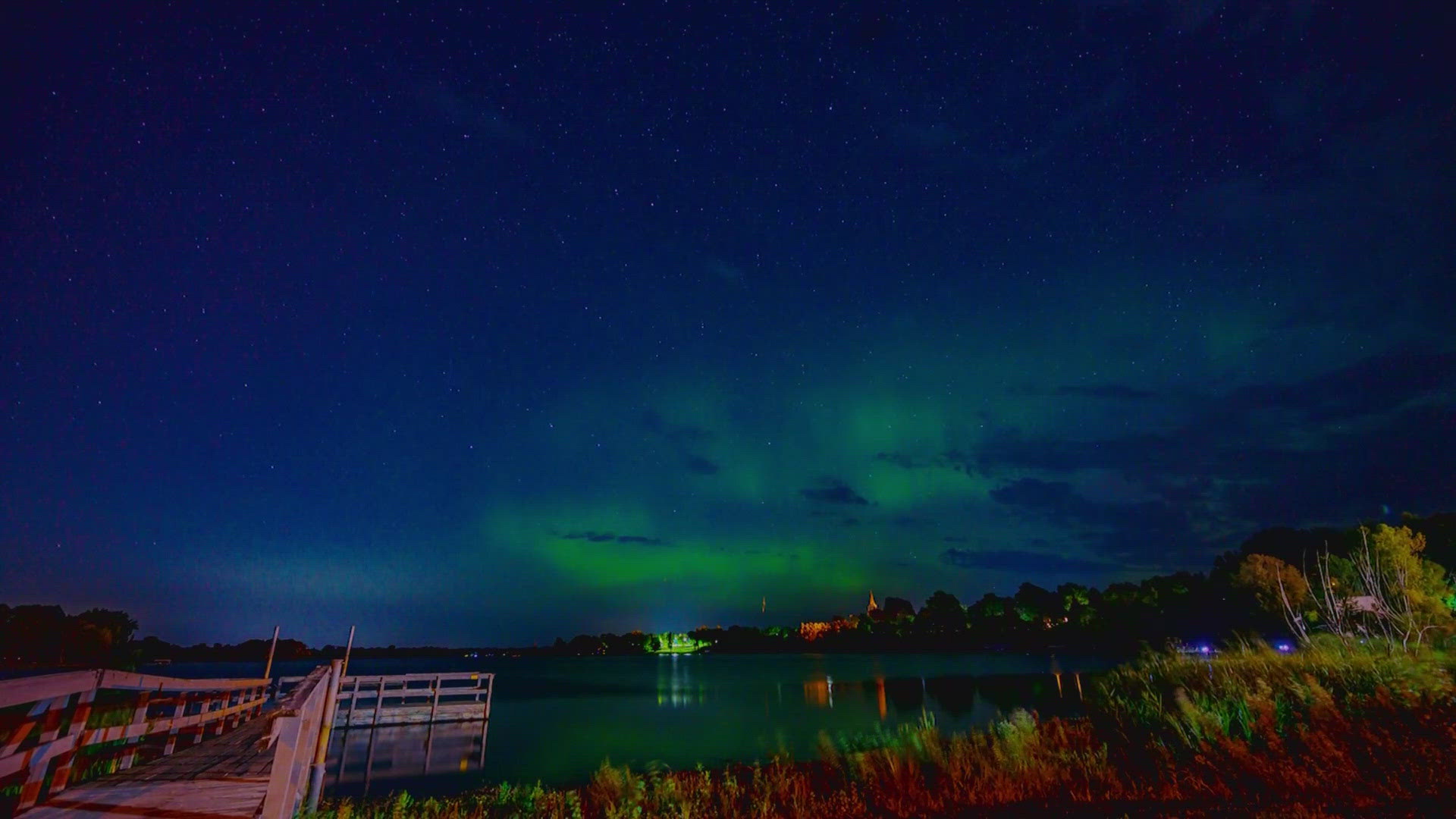WASHINGTON, USA — A rare solar storm is forecasted this weekend, according to the National Oceanic and Atmospheric Administration (NOAA).
According to NOAA, the geomagnetic storm has reached extreme conditions and is categorized as a G5 on the impact scale. This storm is the reason western Washington was able to get such a good view of the Northern Lights between 11 p.m. Friday and 3 a.m. Saturday.
Experts also warn of other impacts caused by the storm that could last through the weekend.
NOAA warns of impacts to communications systems, GPS, power grids and other technologies.
"A geomagnetic storm of this strength can cause multiple and widespread issues with various power and communications systems," a release from NOAA read. "Widespread voltage control problems may occur, and some power grid systems may experience component failures, disruption of service, and protective device trips. This could result in blackouts. GPS and other satellite navigation may be degraded for days."
KING 5 Chief Meteorologist Mike Everett says nothing dangerous is expected to happen.
"The good news is that impact scale will drop through the night and through the weekend," Everett said.
A spokesperson for Seattle City Light told KING 5 that power grid blackouts are very rare, but they "do consider and prepare for all possibilities."
The last geomagnetic storm of this intensity occurred in October 2003. According to NOAA, it caused power outages in Sweden and damaged transformers in South Africa.
These storms are caused by solar flares and coronal mass ejections (CMEs). CMEs are explosions of plasma and magnetic fields from the sun’s corona. According to NOAA, a series of CMEs began on May 8 and caused a "complex sunspot cluster" that is 17 times the diameter of Earth.
Tips for best aurora borealis viewing
- Move away from city light
- Get a clear view of the Northern horizon
- Get comfortable! It takes your eyes about 15 minutes to acclimate

